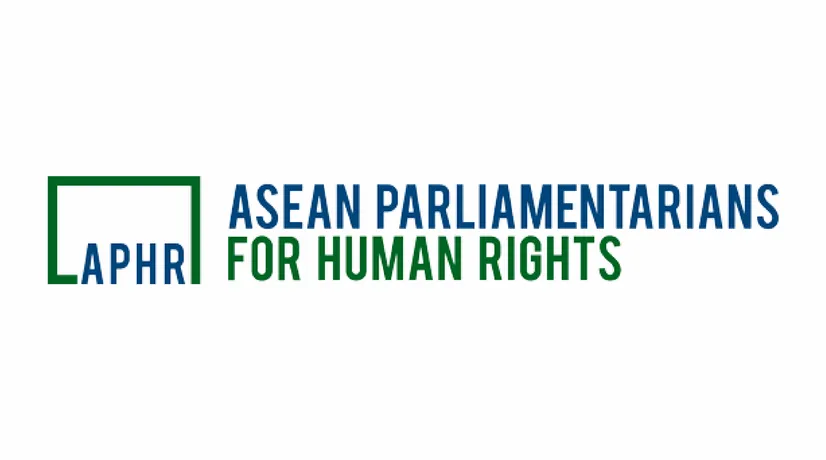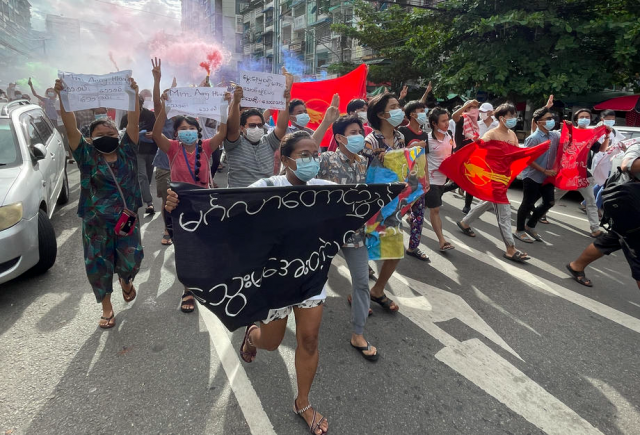APHR responds to Cambodia statement, urges focus on Myanmar crisis
25 January 2022


JAKARTA – In response to the statement issued by the National Assembly of Cambodia regarding ASEAN Parliamentarians for Human Rights’ (APHR) criticism of Prime Minister Hun Sen’s visit to Myanmar earlier this month, the group of lawmakers urges the Cambodian government, as this year’s Chair of the Association of Southeast Asian Nations (ASEAN), to instead prioritize its efforts on finding the solutions needed to address the tragic crisis engulfing Myanmar.
Rather than focusing its response on the National Assembly’s personal attacks on Charles Santiago, APHR’s Chair, the organization asks that the Cambodian government redirect its attention on the more urgent humanitarian and human rights needs in Myanmar.
Far from being a success, the Prime Minister’s Myanmar visit shows that Hun Sen’s consensus-breaking decision not only threatened the legitimacy and solidarity of ASEAN, but may have also emboldened the junta to escalate their abuses on the Myanmar people, APHR said.
On the very day that Hun Sen left Myanmar on 8 January with the junta’s agreement to a ceasefire until the end of 2022 in hand, there were reports that junta forces began airstrikes in Loikaw, the capital of Karenni State, displacing around 40,000 civilians. More than half of the state’s 300,000 residents were reportedly displaced even before the air strikes began.
“ASEAN’s response to the attempted coup in Myanmar has been far from perfect, but the Five-Point Consensus was a step in the right direction, as was the decision to ban Min Aung Hlaing from last year’s summits for failing to adhere to the Consensus. Hun Sen’s visit to Myanmar – and the ensuing joint statement he signed with junta leader Min Aung Hlaing – risked completely undermining that progress,” Santiago said.
APHR’s view that the Consensus should hold has been echoed by the Malaysian and Singaporean Prime Ministers. According to a statement issued by Malaysia’s Foreign Ministry on 25 January, Prime Minister Ismail Sabri Yaakob told Hun Sen that his country’s position to only invite a non-political representative from Myanmar to high-level ASEAN meetings “remained unchanged unless there was real progress and full implementation of the Five-Point Consensus”. Earlier this month, Singapore Prime Minister Lee Hsien Loong also said the bloc should exclude junta leaders from meetings until progress has been made on the Consensus.
Prime Minister Hun Sen himself has now concurred, after initially suggesting that the junta be included in meetings. A post on his Facebook page on 25 January announced that he would invite Min Aung Hlaing to attend the ASEAN summit “if there was progress on the implementation of the five points agreed unanimously … if not, he must send a non-political representative to ASEAN meetings”.
“We’re pleased to see Prime Minister Hun Sen reverting back to the approach originally agreed to by the ASEAN Member States,” Santiago said. “Now what is needed is for the ASEAN Chair to work closely with the rest of its members to hold the junta leader accountable towards the Five-Point Consensus that he himself also agreed to. Amidst all of this, let’s not forget the people of Myanmar, who continue to be subjected to the terror and violence of this junta, and yet bravely continue to voice their rejection of the military.”
During the first 11 months of the junta’s attempted coup, there were 7,686 armed clashes and attacks on civilians across Myanmar, a 715% increase from the same period in 2020 (943). The intensity of the violence was comparable to Syria (7,742), and greater than in Afghanistan (6,481), Yemen (6,270), and Iraq (3,732). In the last four months of 2021, the conflict in Myanmar has escalated to outpace all of the other four countries.
Immediate international action is needed to address the junta’s widespread, systematic, and increasingly frequent and severe attacks on civilians in Myanmar, APHR said.
APHR calls on the Cambodian and other ASEAN member governments to prioritize finding the urgent solutions necessary to address the humanitarian demands in Myanmar, use all means at their disposal to end the atrocities being committed by the junta, recognize all legitimate stakeholders involved, including the National Unity Government (NUG), which includes elected representatives of the Myanmar people, urge the junta to release Aung San Suu Kyi and all opposition MPs and individuals wrongfully imprisoned on baseless politically motivated allegations, and press for Myanmar to be tabled at the United Nations Security Council.
APHR is an independent, non-partisan group of current and former lawmakers, and is committed to the protection and advancement of human rights and democracy across Southeast Asia.
“We remain available for constructive dialogue and engagement with all relevant stakeholders, such as representatives of the Cambodian government, including Prime Minister Hun Sen, with the aim of contributing to finding solutions to the urgent crisis affecting the people of Myanmar,” Santiago said.
Announcements
21 May 2025
Open letter: Malaysia must lead ASEAN with principle, not hypocrisy, to address the Myanmar crisis

Progressive Voice is a participatory rights-based policy research and advocacy organization rooted in civil society, that maintains strong networks and relationships with grassroots organizations and community-based organizations throughout Myanmar. It acts as a bridge to the international community and international policymakers by amplifying voices from the ground, and advocating for a rights-based policy narrative.